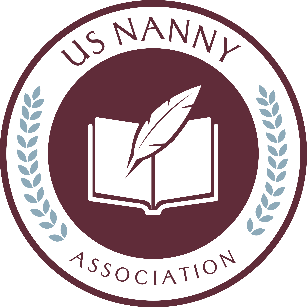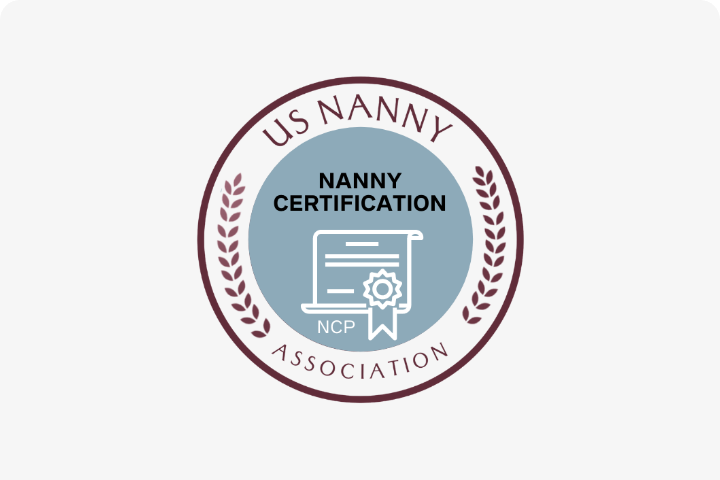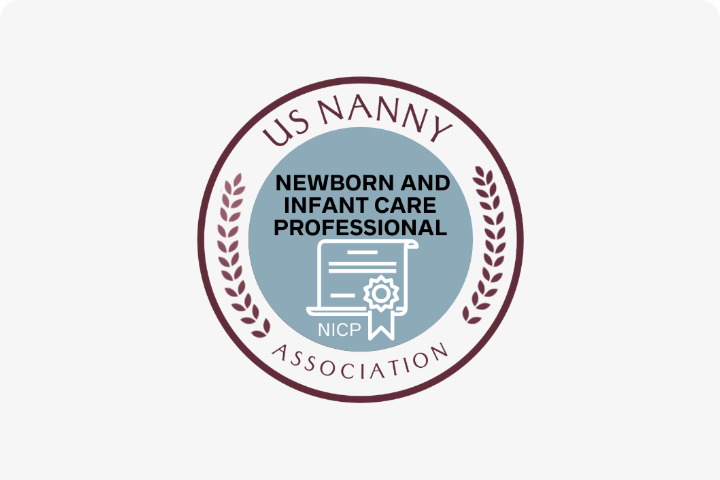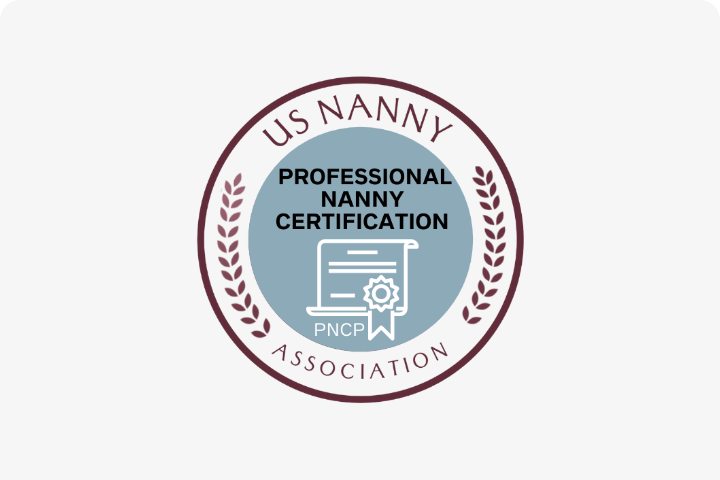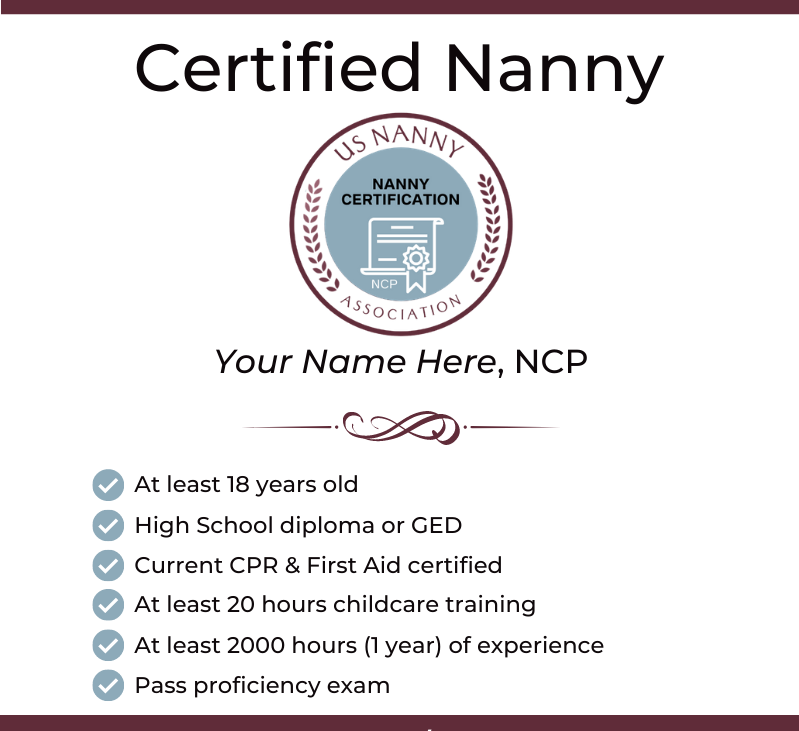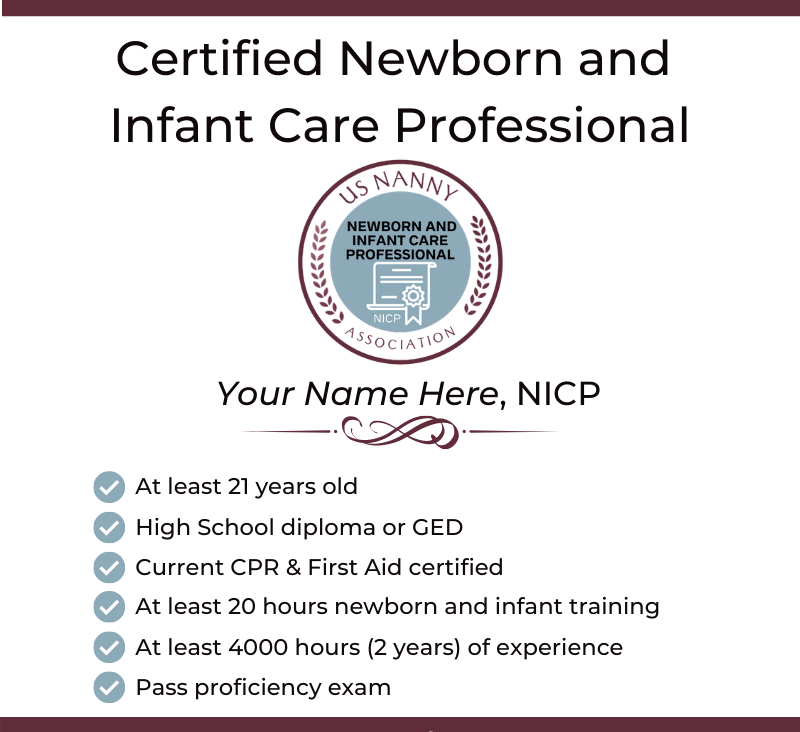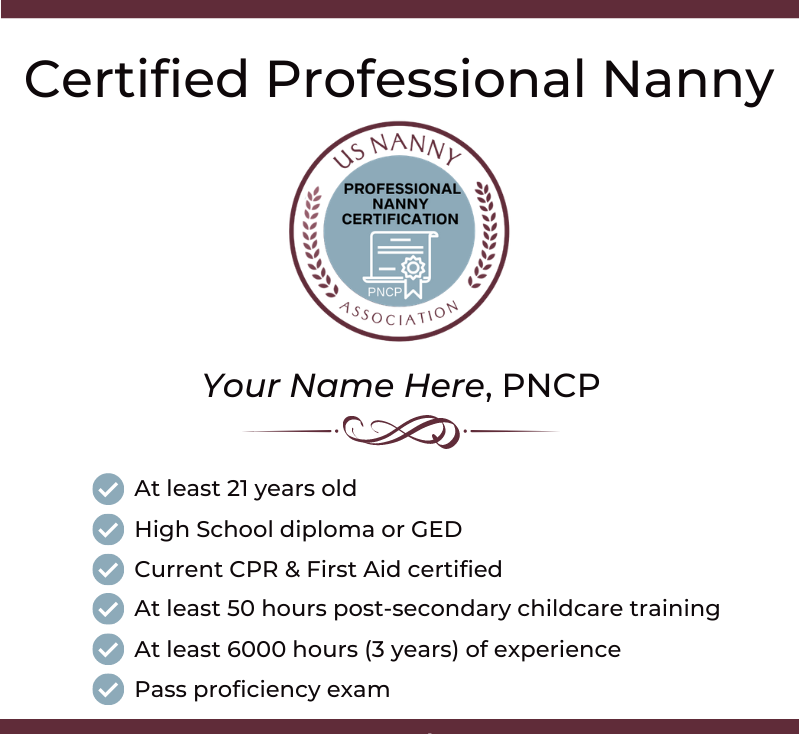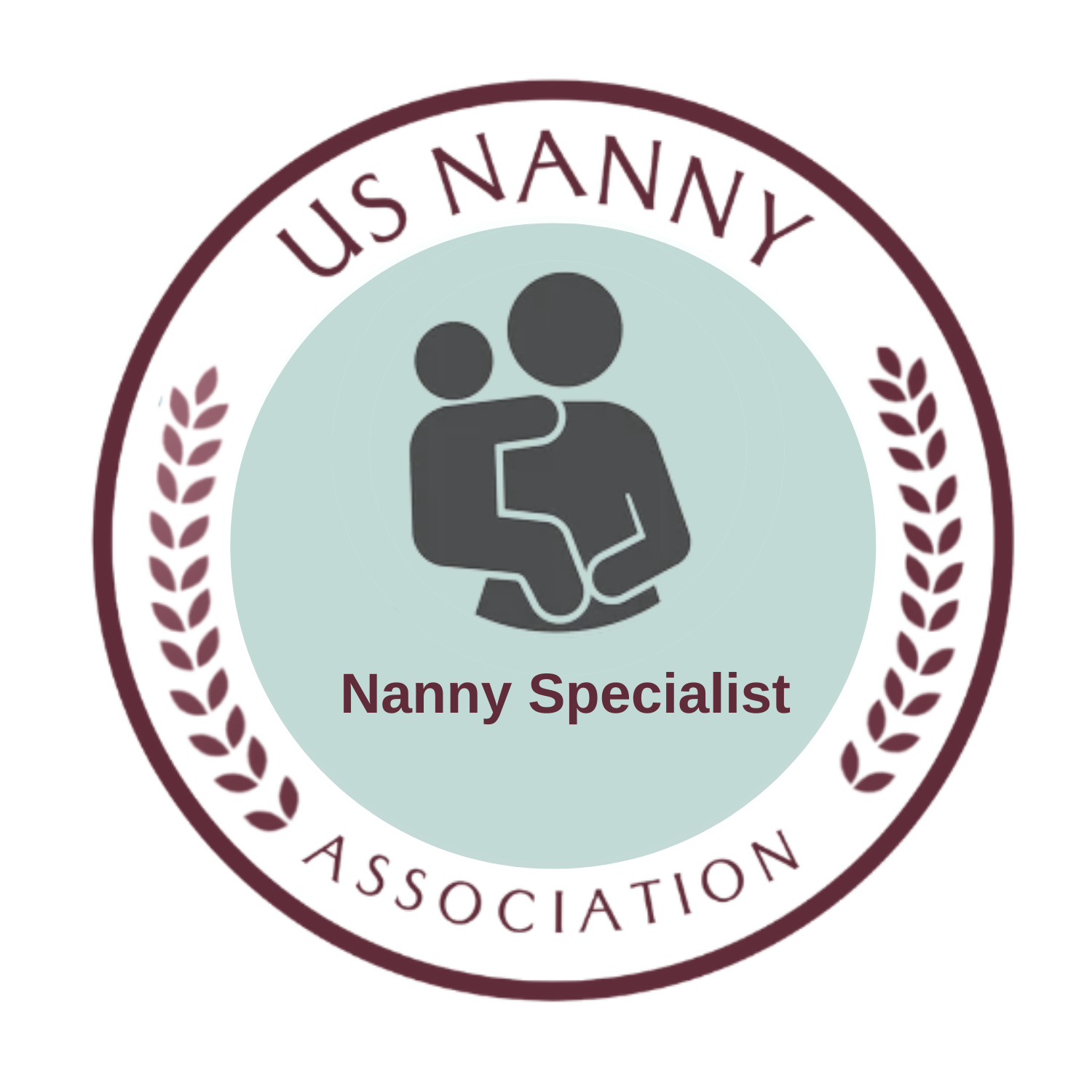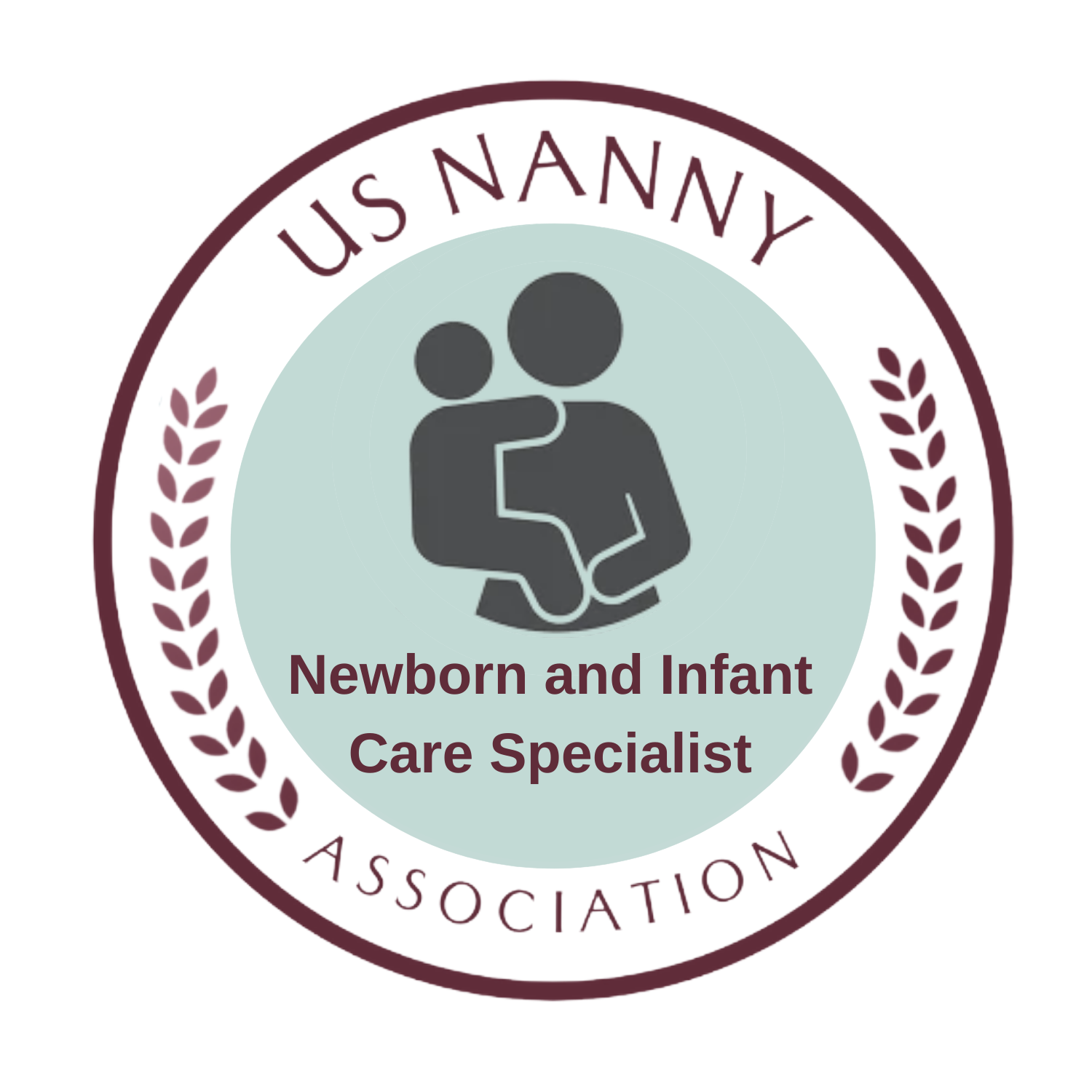Certifications and Credentials

Highest Standards and Credentials in the Nanny Industry
The US Nanny Association elevates the nanny profession to mirror other professional trades. We started by publishing the National Nanny Standards. Then, we launched certifications with the highest requirements. US Nanny Association certifications require a high school diploma or 3 professional references, documented childcare training, current CPR and first aid, documented work experience, passing a background check and passing our industry exam. Like teachers, nurses, and social workers, earning industry credentials demonstrates your commitment to high-quality childcare.
Why I Got Certified…
I live in an urban area with lots of competition for top nanny jobs. The agency I work with provides families with a few nannies to interview and a certification from the US Nanny Association helps me stand out.
I feel confident saying that I’m a professional nanny. With my investment in childcare training and years of work experience, I have earned the title and the salary that comes with it.
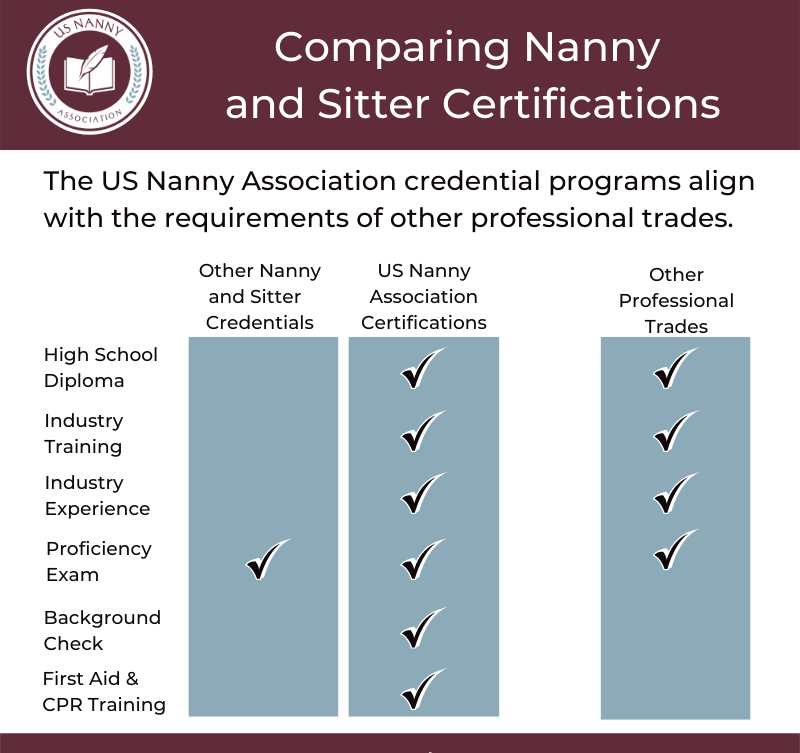
Our Certification Requirements Exceed Other Professional Trades
- ERequirements are comprehensive, matching other professional trade certifications. The US Nanny Association has the highest standards and certification requirements in the nanny industry.
- EDemonstrate to employers, clients, and colleagues that you are a nanny with childcare knowledge, experience, and skills to provide higher quality care.
- EHelp you qualify for jobs and work with agencies that require or highly desire a certification.
Why and How Do To Get Industry Certified

Defining the Nanny Career Path
The US Nanny Association credentials define a Nanny, Newborn and Infant Care and Professional Nanny career path. The skills and experience needed for a Nanny Certification are expanded for a Newborn and Infant care. Professional nannies have additional training and experience requirements. These paths are based on the published national nanny standards.
Certified Nanny & Childcare Provider (NCP)
The Certified Nanny and Childcare Provider (NCP) Credential is designed for nannies and sitters seeking to establish and maintain a safe, clean and healthy environment for children.
Certified Nanny requirements:
- At least 18 years old
- High school diploma or GED
- CPR and First Aid certification
- 20 clock hours or 3 credit hours of childcare training from any reputable organization
- 2000 hours (1 year) of childcare work experience
- Pay credential fee
- Pass background check
- Pass NCP proficiency exam based on National Standards
Certified Newborn & Infant Care Professional (NICP)
The Certified Newborn and Infant Care Professional (NICP) credential is designed for those caring for preemies, newborns and infants.
Certified Newborn & Infant requirements:
- At least 21 years old
- High school diploma or GED
- CPR and First Aid certification
- 20 clock hours or 3 credit hours of newborn and infant training
- 4000 hours (2 years) of newborn and infant work experience
- Pay credential fee
- Pass background check
- Pass NICP proficiency exam based on National Standards
Certified Professional Nanny & Childcare Provider (PNCP)
The Certified Professional Nanny and Childcare Provider (PNCP) credential is designed for nannies seeking a career in childcare.
Certified Professional Nanny requirements:
- At least 21 years old
- High school diploma or GED
- CPR and First Aid certification
- 50 clock hours or 6 credit hours of trade school, college or university
- 6000 hours (3 years) of of childcare work experience
- Pay credential fee
- Pass background check
- Pass PNCP proficiency exam based on National Standards
Certified Nanny Specialist
The Nanny Specialist (NS) credential is designed for nannies and sitters who do not have a high school diploma but have invested in childcare training and have work experience. Except for the high school diploma, Nanny specialists must meet all the requirements of the Certified Nanny program. Instead of a high school diploma, applicants must submit 3 letters of recommendation.
Certified Newborn and Infant Specialist
The Newborn and Infant Specialist (NIS) credential is designed for childcare providers who do not have a high school diploma but have invested in newborn training and have newborn care work experience. Except for the high school diploma, Newborn and Infant (NIS) specialists must meet all the requirements of the Certified Newborn program. Instead of a high school diploma, applicants must submit 3 letters of recommendation.
